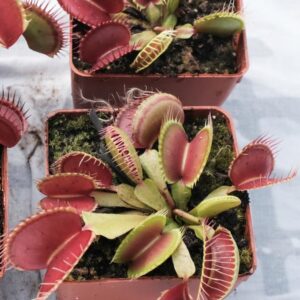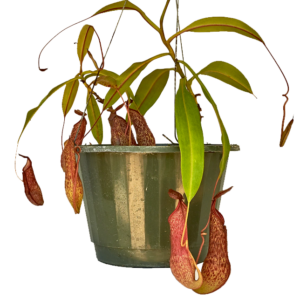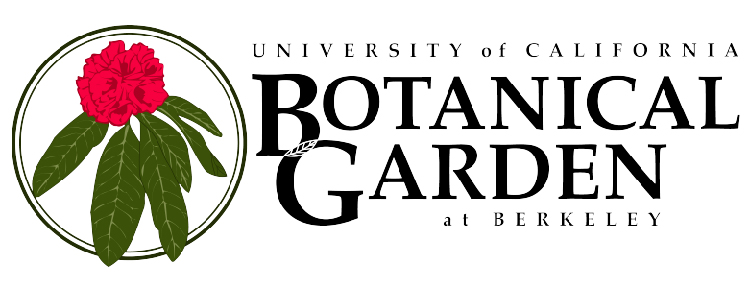Carnivorous Plant Pop-Up Sale
Friday, July 14–Sunday, July 23
Choose from a wide selection of carnivorous plants including over 500 Sarracenia hybrids bursting with an array of color! Plants will be restocked daily.
Limited quantities of Darlingtonia, Nepenthes,
|
HOURS Opening Day, Friday, July 14: Members only from 9:00 am–10:00 am General Public: 10:00 am–4:30 pm Saturday, July 15–Sunday, July 23: 10:30 am–4:30 pm daily |
- Members receive their regular 10% discount on plant purchases
- Bring a box and/or plastic bag to carry your purchases home
- If you plan to only shop without a Garden visit, there is no reservation or admission fee required.
- Small plants priced from $10-$25, special and large plants $30-$60
Your purchases at this sale provide support for our work at the Garden. Thank you!
Learn how to care for these unique plants with UCBG horticulturist and carnivorous plant expert James Fong:

Carnivorous Plant Care Workshop
Monday, July 17, 12:00–1:00 pm
$35/$30 Garden Member
Join us for this informative hands-on workshop to learn how to care for your carnivorous plants led by UCBG horticulturist and carnivore expert James Fong. You will learn techniques for repotting and proper plant care to keep your plants healthy!
Register:

Carnivorous Plant Sale Preview
Zoom recording will be available soon!
Get a preview of our Carnivorous Plant Sale with our horticulturist and carnivore expert James Fong via Zoom. During this short program James will walk us through some of the exciting plants available, which do the best in which environments, as well as sharing general information about insectivorous plants and care. Join us for this fun ‘plant lunch hour’ and plan to take home some new plant friends from the Garden!
In addition to many Sarracenia, you will also find these choice selections:
 Venus Flytrap (Dionaea muscipula)
Venus Flytrap (Dionaea muscipula)
Perhaps the most famous of all carnivorous plants, the Venus flytrap is endemic to the grassy wetlands of North Carolina. While once abundant, the flytrap is now severely threatened due to poaching and to destruction of its wet savanna habitat, but can be propagated by tissue culture. This plant lures insects, often ants or flies, with nectar secreted around the rims of its traps. When trigger hairs on the leaf are touched, the trap snaps shut, imprisoning the prey. After secreting digestive juices, the flytrap takes about five days to digest and absorb the soft parts of its prey. Best grown outside or in a very sunny window.
 Sundews (Drosera)
Sundews (Drosera)
These exquisite plants have thin or paddle-like leaves covered in tiny tentacles; at the end of each is a glistening droplet of sticky ‘sundew,’ designed to entice and capture small insect prey. The leaf will then curl around its meal and absorb the released nutrients. Sundews are among the easiest of carnivorous plants to keep indoors, growing on a sunny windowsill with the pot sitting in a saucer of water. The sale features several different species, including a lance-leaved sundew of Australia, Cape sundews of South Africa, and some unusual forked varieties.
 Butterworts (Pinguicula)
Butterworts (Pinguicula)
Butterworts have a flattened rosette leaf shape, giving them the appearance of a yellow-green glistening flower. The leaves secrete both a sticky substance that traps small insects and digestive enzymes to finish the job. Butterworts are best known for their beautiful flowers that sit atop long stems. They like partly sunny growing conditions and are great for bright windowsills. You can find the butterworts inside the Garden Shop.
 Tropical Pitcher Plant (Nepenthes)
Tropical Pitcher Plant (Nepenthes)
With a fantastic pitcher structure dangling from a tendril at the end of the leaf blade, Nepenthes are native to Southeast Asia. They generally like bright light and humid environments. Like other carnivorous plants, they entice various arthropods through attractive colors, sugary nectar, and even sweet scents; captured prey are digested in their large pitchers.

